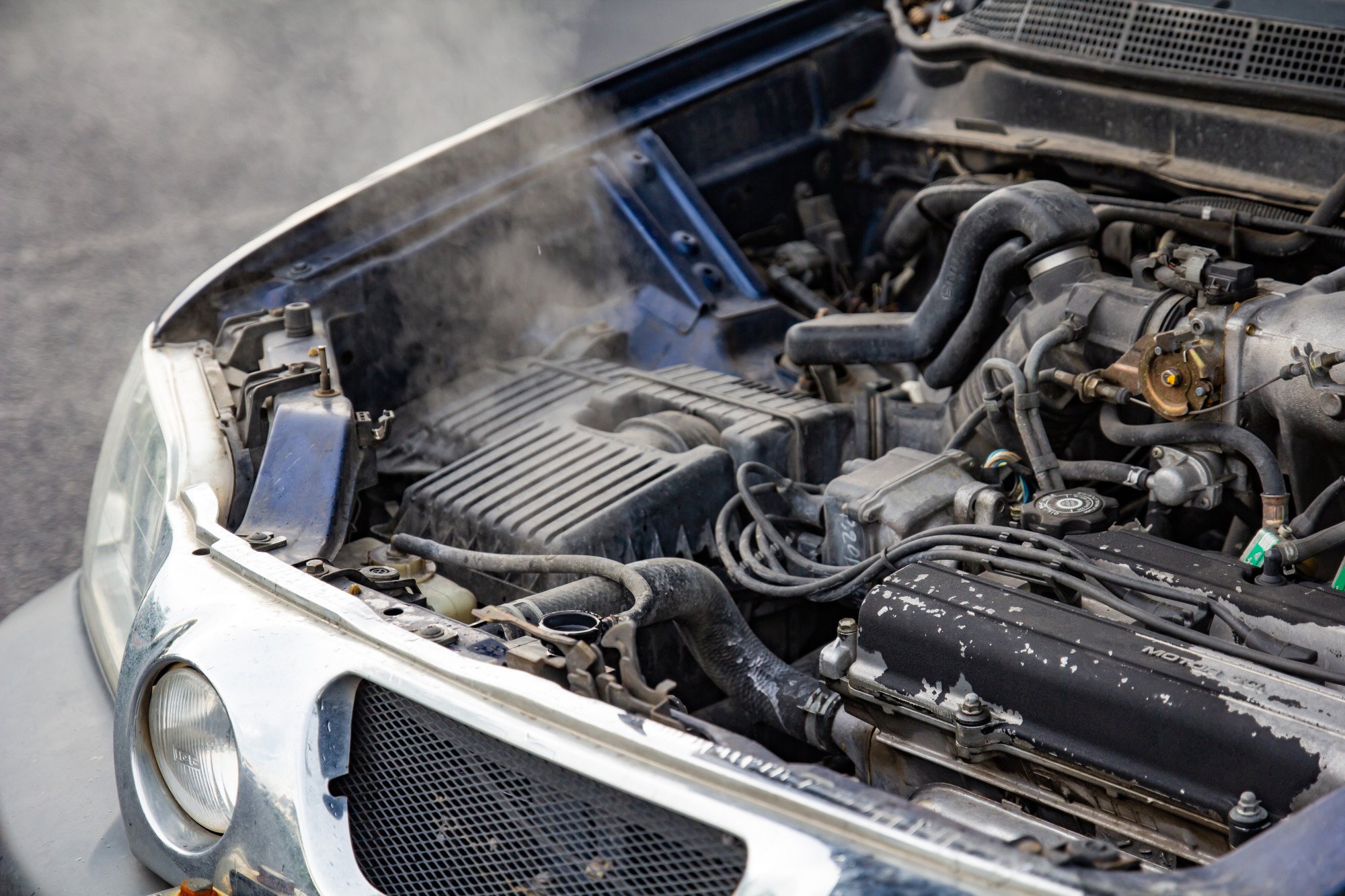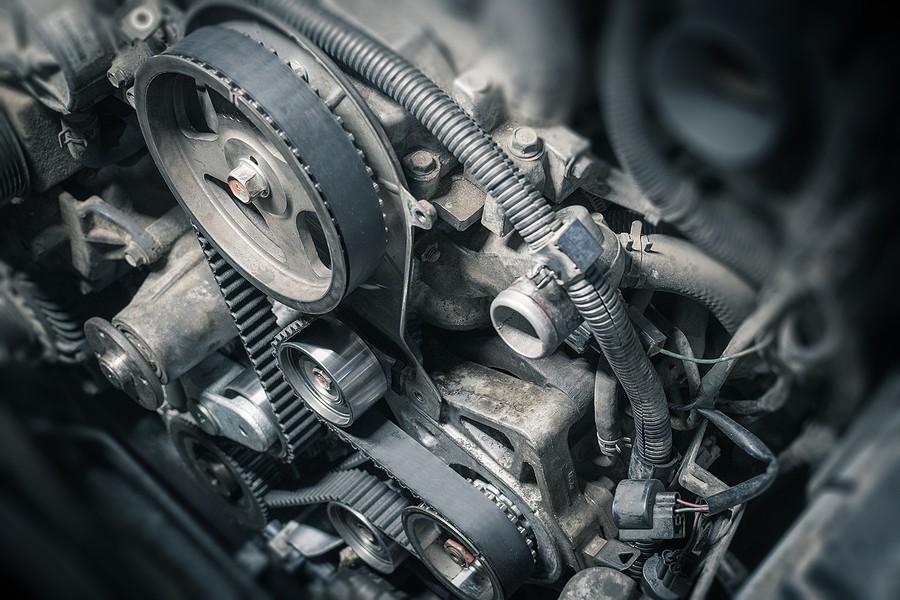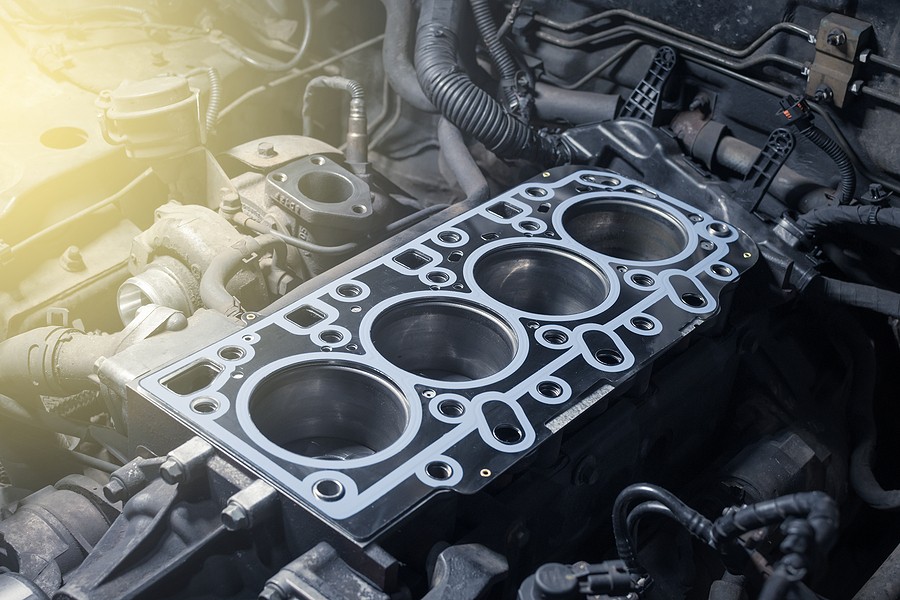Here are the 8 causes of engine compression loss:
- Piston holes
- Valve leaks
- Blown head gasket
- Damaged cylinder walls
- Cracked chains and damaged belts
- Piston rings wear out
- Valve springs damages
- Camshaft failures
Your vehicle's engine is a core component, and it is very expensive, which means when it goes bad, you're talking about thousands of dollars on repair. So that's why it is critical for you as the driver to maintain the engine and educate yourself about the different types of problems that you might face.
Compression loss could be among the different engine problems that could happen as your engine ages. Understanding what a compression loss is and what exactly causes it helps prevent the problem from happening because it is one of those critical problems that could damage the entire engine in no time.
This article provides you with an overview of engine compression loss. In addition, it highlights the causes of engine compression loss that you should be aware of so we can prevent them as much as possible and use your engine for the longest part-time possible without major complications.

What does the compression last mean?
You don't need to be a mechanic to understand the basic stuff about your engine. However, there are some things that, once you learn about, you can expect what could interfere with your engine's performance and causes it to go back.
The engine must be maintained within a specific compression in any vehicle equipped with a combustion system to operate properly. Without this compression, the engine cannot generate internal energy, and the air-fuel mixture will not be ignited properly. The generated energy from the engine is then converted to mechanical energy to help your vehicle go.
Maintaining the proper engine compression is critical to any vehicle's performance. If there is any disturbance or loss in this compression, there's no way you can generate energy and you'll realize lots of complications in your engine's performance. You might get to a point where your engine fails if you don't take care of the problem immediately.
When engine compression loss happens, it results in other things like engine misfiring, engine performance reduction, fuel economy, or even damages to the internal components, which means more money on the repair.
Eight causes of engine compression loss
Now you have a general understanding of why it is critical to maintaining the engine compression; it is also important to understand what exactly causes the engine compression loss. This list provides you with the top and most common causes of engine compression.
1. Piston holes
The Pistons are critical components in your cylinders, and they always face difficult and extreme situations. Imagine what could happen to the Pistons when the explosion happens inside the cylinders? The generated and expanded gases push the Pistons to transfer the energy to the camshaft and the other components in your vehicle.
Over time, because the piston faces extreme temperatures, it's not surprising to deal with situations where holes and pokes are created within the pistons. These holes could occur on the pistons or between the piston and the walls, allowing gases to leak outside the cylinders and causing compression leaks.
When these gases leak outside the cylinders, instead of energy transfer to the required components, you are just going to be losing energy all the time, and whatever the engine is burning inside the cylinders is not going to be transferred to the vehicle as motion, and that's why you realize a significant reduction in your vehicle’s overall performance.
2. Valve leaks
Sometimes the leaks do not happen immediately on the Pistons. Instead, you might experience some leaks around the valve. There are many valves around the cylinders. Some are intake valves, and others are exhausted or exit valves. Any of these valves is expected to wear out over time. When they wear out, gases could easily leak through the weak locations, resulting in a significant loss in engine compression. Thus, one of the most common causes of engine compression loss is leaks around the valves.
There are many reasons for damage to the intake or exhaust bells. For example, they are expected to wear out over time, and that's why they will cause compression loss. Also, there are some other problems with the vehicle computer, which could also cause damage to the valves and therefore result in engine compression loss.

3. Blown head gasket
The head gasket is a very thin component sitting on top of the cylinders. It is responsible for preventing any guesses from leaking outside the cylinders and fluids from getting inside the cylinders when they're not needed. Unfortunately, every fluid must run through specifically designated pathways. If the head gasket blows up, things get like a mess, and that's where you'll do with all sorts of problems in your engine’s performance, including compression loss.
When the head gasket blows up, it's not going to stop at the compression loss level, and things get more complicated, leading to significant engine failure, and that's why it's important for you as a driver to familiarize yourself with different symptoms indicating a blown head gasket. This way, you contain the problem as fast as possible and prevent it from impacting other components.
4. Damaged cylinder walls
Even if there are no problems in the blown head gasket or the surrounding components, there could be a problem in the cylinder itself. This is because the cylinder walls are those experiencing extreme temperatures all the time, and dealing with cylinder walls damages is not very rare.
That's why when there is a very tiny crack in the engine cylinder wall; you'll see all types of negative consequences ranging from as low as minor engine overheating to as high as complete compression losses and engine damages.

5. Cracked chains and damaged belts
If your cylinders and the different components were in good shape, the next thing that could cause engine compression loss would be problems with the timing belt or that change. There are tons of chains connected to the engine and the different internal components, and if any of those is not in good shape, they can easily lead to severe issues, including engine compression loss.
Therefore, it is always critical for you as a driver to maintain your vehicle and follow the recommendations of your vehicle's owner’s manual when you have to check on those chains and replace them. Sometimes you might experience damages that require replacing these chains before the deadline or their due date. Therefore, you must familiarize yourself with different symptoms of a bad engine belt that you can detect as early as possible to prevent severe compression loss and, therefore, significant damage to your engine.
6. Piston rings wear out
In addition to the Pistons, there are Pistons rings connecting the Pistons to the shaft. These rings seal the Pistons and prevent any gas leakage from inside or any other fluids leakage towards the engine cylinders.
These rings are not designed to last forever, and they can easily wear out, causing damage inside the engine. One of the very common issues that you might experience when the piston rings fail is engine compression loss.

7. Valve springs damages
While we mentioned that your engine compression loss is expected to happen when there is a problem with the valves. Sometimes there aren't problems with only portions of these bells. For example, if the valve springs or seats or probably there are tears not in good shape, they can easily lead to a significant amount of compression leaks around your engine.
Therefore, if your mechanic confirms a problem with the valve, you can understand where exactly the problem is happening because sometimes this valve might be repairable, so you don't have to install a new one and pay lots of money to fix this problem.
8. Camshaft failures
Finally, if there is no problem around the cylinders, you have to check the camshaft itself. Some issues could happen in the camshaft leading to severe compression loss.
One might expect that if so, the cylinders are completely sealed, and if the valves are in good shape, there's no way for gases to leak outside the engine compartment. However, there are still some potentials that gases could leak around the camshaft, and that's when the engine will generate all the required energy. Unfortunately, it'll be last before it gets to the wheels and before your vehicle takes advantage of it and moves.

How much does it cost to fix engine compression loss?
As you might notice, the causes for engine compression loss are very different, and depending on the root problem; your expected repair costs would be different.
For example, if what you're dealing with has to do with a bad piston, you would expect to pay somewhere between $1000 and $5000 in some severe scenarios! Yes! This is a very significant repair cost, and that's why you must evaluate the situation carefully before spending this money and see if it's worth fixing your car or not.
On the other hand, if your problem must deal with a bad intake valve, repair costs can be slightly different. You would expect to pay somewhere between $90 and $400. This price range would differ significantly depending on your vehicle's type and where you get the job done. That's why some people with certain mechanical skill sets prefer to place the intake valve themselves without needing a professional.
However, suppose you don't have the right mechanical skill sets. In that case, you don't want to risk it because you're dealing with a very sensitive component that could introduce many mistakes and damages, which means lots of extra money for the repair.
Finally, if the cause of engine compression loss has to do with a bad camshaft, replacing the camshaft would require somewhere between $700 and $3000. So this is again one of the expensive repairs you might experience, and that's why you might want to check if you have other problems and evaluate whether you want to fix this vehicle or purchase a better one.

Final thoughts
Engine compression loss is a very common engine problem that not everybody is aware of because of its slightly complicated causes. Understanding the engine compression loss is extremely important for you as a driver. Once you determine the main causes of engine compression losses, you can prevent this from happening or at least detect the problem or narrow it down.
This article walked you through the 8 causes of engine compression loss. As you might notice, some of these causes might be minor and can be fixed easily, but a couple might require a significant repair, which means a lot of money to get your vehicle going again.
Suppose you got to a point where your engine compression loss is happening because of a severe problem. In that case, that's not the end of the world because you can easily sell this vehicle and purchase a better one that doesn't have any engine problems.
Of course, it's not going to be easy to find someone to buy your vehicle with engine problems, but once you connect with Cash Cars Buyer, you'll guarantee to get your vehicle out of your way as soon as possible!
Cash Cars Buyer is one of the top-rated car removal companies in the nation that guarantees to pay you the top dollars and provide you with free towing despite your living location around the United States.
Our process is very straightforward and doesn't take more than a couple of days to get your car removed safely and for the most money.
All it takes you is to:
- Describe your car's type and condition
- Receive our instant free quote
- Accept the quote
- Get your car removed and receive your cash payment on the spot!
To learn more about our process and our team, you can reach out to us by calling us at (866) 924-4608 or by visiting our home page click on the free instant online offer.



